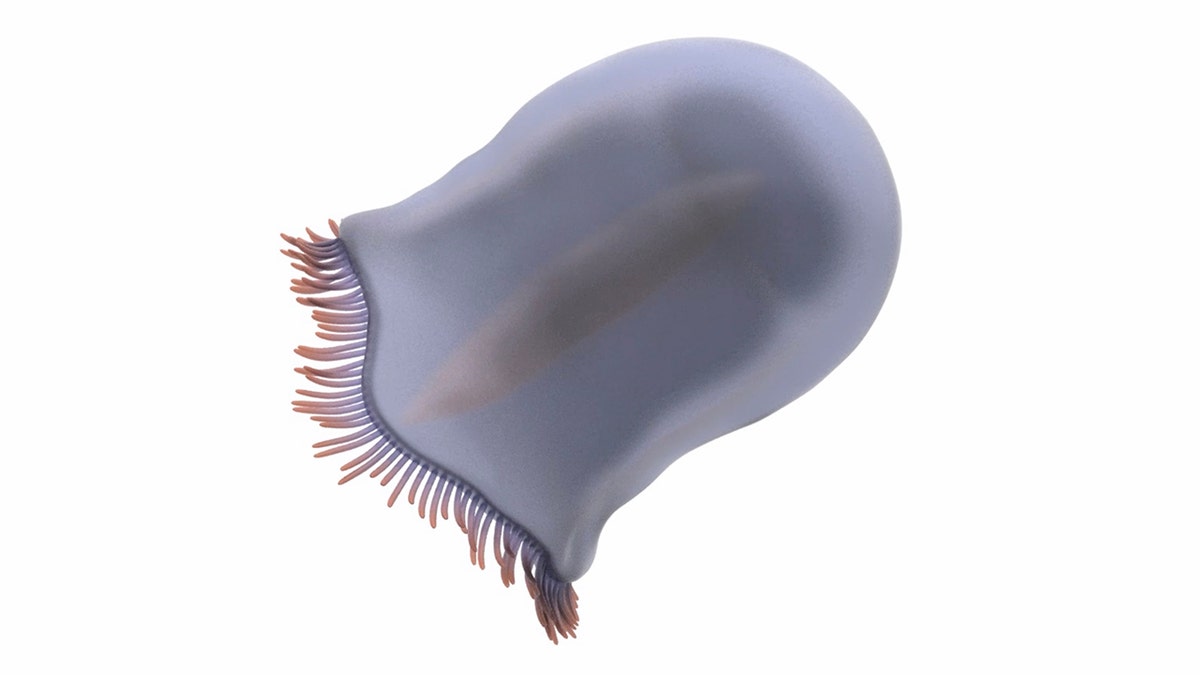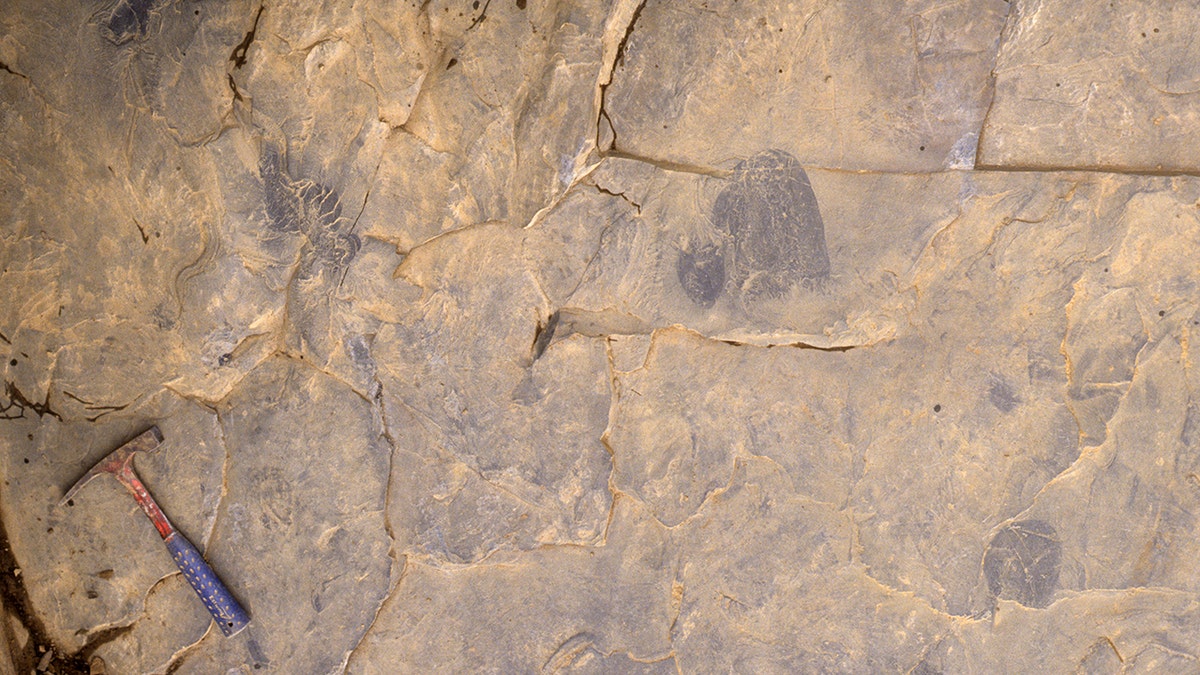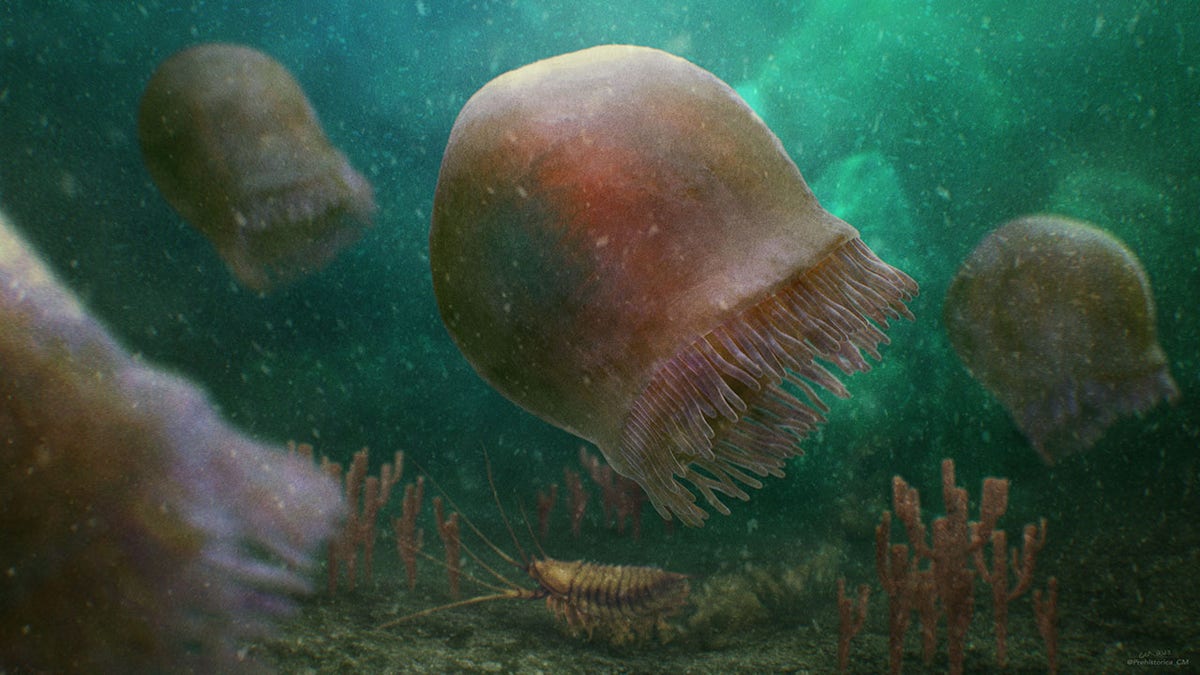Human-sized jellyfish lurking off English coast stuns divers
A human-sized jellyfish lurking off the coast of the English Channel stunned divers who said, ‘it’s an experience we’ll never forget.’
The world’s oldest jellyfish fossil has been found — believed to be 505 million years old.
A study published in the journal Proceedings of the Royal Society B Biological Sciences noted that the fossil of a free-swimming predatory jellyfish was found recently.
The jellyfish, named a Burgessomedusa phasmiformis, commonly known as a burgess medusa or burgess shale, was extracted from Burgess Shale in the Canadian Rockies, according to SWNS, the British news service.
FOSSIL HUNTER SPOTS 450,000-YEAR-OLD MAMMOTH TUSK WHILE AT QUARRY: 'STICKING OUT LIKE A SORE THUMB'
The famous fossil-beating deposit is in the Yoho and Kootenay National Parks in southwestern Canada — and is known for its impressive preservation of soft-part imprints.
The jellyfish fossil was well-maintained and was thought to be originally comprised of 95% water, as SWNS reported.

The free-swimming predatory jellyfish, named Burgessomedusa phasmiformis, was discovered from fossil records extracted from the Burgess Shale — a fossil-bearing deposit in the Canadian Rockies. (SWNS)
The jellyfish is also thought to have had the ability to eat large prey.
Joe Moysiuk, a PhD candidate in ecology and evolutionary biology at the University of Toronto — based at the Royal Ontario Museum, where the fossil is held — told SWNS that these jellyfish are normally hard to track down.
VIRGINIA TECH RESEARCHERS DISCOVER SIXTH MASS EXTINCTION EVENT
"Although jellyfish and their relatives are thought to be one of the earliest animal groups to have evolved, they have been remarkably hard to pin down in the Cambrian fossil record," he said.

Field images of Burgessomedusa phasmiformis jellyfish specimens show the fossil proof (middle right). (SWNS)
These specific jellyfish were named after their similar appearance to Medusa — belonging to a group of medusozoan animal, as SWNS reported.
The Burgessomedusa phasmiformis swimming jellyfish had typical saucer or bell-shaped bodies.
Today, jellyfish in this ancestor family include box jellyfish, hydroids, stalked jellyfish and more.
CLICK HERE TO SIGN UP FOR OUR LIFESTYLE NEWSLETTER
These fossils proved to the team that these jellyfish were more complex than some originally thought.

A fossil from the oldest-ever species of jellyfish to have roamed the oceans of planet Earth has been discovered — said to be 505 million years old. (SWNS)
Dr. Jean-Bernard Caron, co-author of the study, told SWNS that these jellyfish were efficient predators.
"Burgessomedusa adds the complexity of Cambrian foodwebs, and like Anomalocaris, which lived in the same environment, these jellyfish were efficient swimming predators," he said.
CLICK HERE TO GET THE FOX NEWS APP
"This adds yet another remarkable lineage of animals that the Burgess Shale has preserved chronicling the evolution of life on Earth."
The Burgessomedusa phasmiformis fossils can be seen in the Burgess Shale section of the Willner Madge Gallery at the Royal Ontario Museum in Toronto, Canada.









































